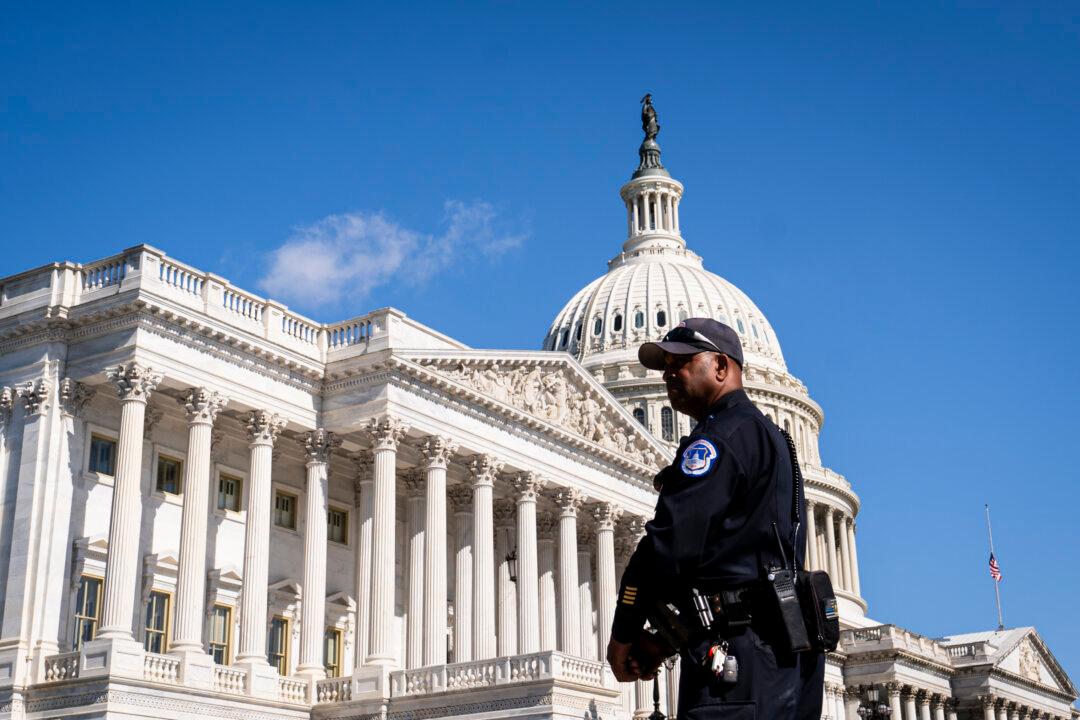U.S. stock futures and crude oil prices led a market rebound on Nov. 29 following sharp selloffs in risk assets on Black Friday triggered by Omicron-related headlines, with investor mood seeming more upbeat after top financial firms over the weekend urged no portfolio adjustments in the wake of news of the COVID-19 variant.
Futures on the Dow Jones Industrial Average went up 134 points, or 0.38 percent, S&P 500 futures added 28.5 points, or 0.60 percent, and Nasdaq 100 futures rose 135.25 points, or 0.83 percent, by 5:30 a.m. New York time on Nov. 29, Tradingview data showed.
U.S. oil (West Texas Intermediate) prices jumped over $3 dollar a barrel, or 4.66 percent, while the global benchmark Brent crude rallied $2.90 a barrel, or 3.99 percent. Gasoline futures rallied over 5 percent.
In another sign of a pivot back into riskier assets and away from safe havens, yields on the 10-year and 30-year U.S. Treasury securities rose by over 3 percent. Yields move in the opposite direction to prices.
European stocks also saw gains on Monday, with the pan-European STOXX 600 index climbing 0.93 percent, Germany’s DAX gaining around 0.5 percent, and France’s CAC 40 up 1.01 percent, by 5:35 New York time.
Several top financial institutions, including Goldman Sachs and Credit Suisse said over the weekend that they don’t recommend portfolio adjustments in context of the emergence of Omicron.
Credit Suisse, which noted it expects vaccines to maintain some efficacy against Omicron, also made no portfolio changes, staying slightly overweight on equities.
The World Health Organization (WHO) named the Omicron strain, which was discovered in South Africa less than a week ago, as a “variant of concern” (VOC) on Nov. 26, sparking travel bans to several African nations.
On Monday, the WHO posted a technical brief on Omicron, saying it is likely to spread internationally, posing a “very high” global risk of infection surges that could have “severe consequences” in some areas.
The U.N. agency urged countries to ramp up vaccination of high-priority groups and, in anticipation of increased case numbers, to “ensure mitigation plans are in place” to maintain essential health services.
“Omicron has an unprecedented number of spike mutations, some of which are concerning for their potential impact on the trajectory of the pandemic,” the WHO said.
“The overall global risk related to the new VOC Omicron is assessed as very high,” the agency added.
The agency added that, while there have been no reported deaths linked to Omicron to date, more research is needed to assess the variant’s potential to escape protection against immunity induced by vaccines and previous infections.
While Omicron was already as far afield as Canada and Australia, a South African doctor who had treated cases said symptoms of the virus were so far mild.
BioNTech said Friday it may know within two weeks if the vaccine it developed with Pfizer needs to be reworked, with some analysts saying that uncertainty around the new variant and its responsiveness to vaccines means trading is likely to stay volatile for some time.
“Until then, market volatility is likely to remain elevated,” Rodrigo Catril, a senior FX strategist at National Australia Bank, wrote in a client note. “Markets have been forced to reassess the global growth outlook until we know more.”





